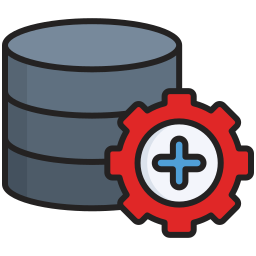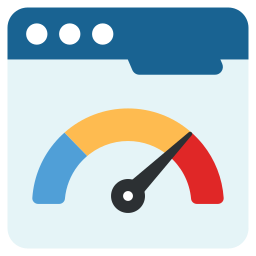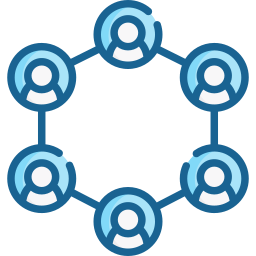Simplify Complex Trials: Unify Your Data with a Centralized eClinical Platform
Clinical trial sponsors are increasingly challenged not only by the complexity and diversity of clinical trial data but also by the escalating demand for efficiency, speed, and compliance. While it is common for research teams to utilize multiple solutions to collect, manage, and monitor data, most are looking for something easier to work with. After all, the studies themselves are becoming increasingly complex, with data now available from a nearly limitless number of sources.
This leaves sponsors wishing for an eClinical platform that can handle anything: any therapeutic area, any phase, any number of sites, decentralized clinical trials (DCTs), and even non-interventional registries and databases. This article will discuss why this kind of solution is so needed and provide some guidance for how to move forward.
Unifying Diverse Study Designs
The first, and perhaps most obvious, reason for adopting a more versatile clinical trial data platform is the growing diversity of modern study designs. Clinical trials that rely exclusively on participant site visits are becoming rarer, giving way to designs that combine site-based data collection and monitoring with remote data collection and participant engagement through the use of a variety of DCT approaches (ePRO, eConsent, virtual visits, etc.). Any given study, therefore, becomes more unique based on its data collection strategy. Each unique study type has its own set of challenges and requirements, from patient recruitment and retention to data monitoring and analysis.

Enhancing Data Quality and Integrity
A platform capable of handling diverse data types from various sources is crucial for streamlining operations, minimizing errors, and ensuring data consistency and quality. This is particularly important in a landscape where real-world data (RWD) and real-world evidence (RWE) are playing increasingly significant roles. The ability to integrate and harmonize data from various sources, including electronic health records (EHRs), wearable devices, and direct patient inputs, is indispensable for generating robust, actionable insights.

Accelerating Clinical Trials
Speed is of the essence in clinical research, where getting therapies to market faster can have profound implications for patient health and commercial success. Speed, in terms of data monitoring, also means researchers need to be able to gain insights from data as quickly as possible once it is collected. With so many potential data sources now, the amount of data flowing into a clinical study can be enormous. A capable platform facilitates quicker data integration, processing, and analysis, enabling faster, more informed decision-making. This helps to keep participants safe, as study team members can spot trends in the data faster that may point to adverse events, drug interactions, or other risks. Trends may also help researchers to find areas where patients may be having trouble participating in the study, issues that could lead to poor adherence and dropouts. A centralized data platform with the ability to automate routine tasks, streamline data workflows, and provide near real-time data access and analysis capabilities even when dealing with huge volumes of data can help researchers maintain study timelines while keeping participants safe and involved.

Ensuring Compliance and Scalability
Regulatory compliance is a non-negotiable aspect of clinical research, with stringent requirements for data management and reporting. An advanced eClinical platform supports adherence to global regulatory standards, including GDPR in Europe and HIPAA in the United States, through built-in compliance features and audit trails. Moreover, scalability is a critical consideration for sponsors managing large portfolios of studies across different therapeutic areas or spanning pharmaceuticals, immunotherapies, biotech therapies, and medical devices. A scalable platform can adapt to varying study sizes and complexities without compromising performance or compliance.

Facilitating Decentralization and Patient Engagement
The shift toward including more and more DCT elements in modern trial designs highlights the need for platforms that support remote data collection and patient engagement. A patient-centric approach, facilitated by user-friendly interfaces and mobile applications, can enhance patient recruitment and retention by making participation more convenient and less burdensome. Furthermore, platforms enabling virtual visits, eConsent, and remote monitoring can expand the reach of trials, opening access to clinical research to more diverse and representative populations of patients. This, then, can lead to more complete conclusions on safety and efficacy.

Integrating Data Across Therapeutic Areas
Many clinical research sponsors operate across multiple therapeutic areas, each with its own set of data standards and requirements. A unified eClinical platform capable of handling this variability allows for more efficient data management and cross-study analyses, fostering a more integrated approach to research and development. This integration is particularly valuable for sponsors looking to leverage insights across their entire research portfolio to inform future studies and therapeutic strategies.

Streamlining Operations and Reducing Costs
Efficiency in clinical trials not only speeds up research but also reduces costs. By automating data collection, validation, and analysis processes, a comprehensive platform can significantly lower operational burdens and associated expenses. This applies across the study, from the sponsor-side trial monitors and data managers to site-based study teams. Further, this efficiency extends to data reporting and submission, where automated features can streamline the preparation of documents and datasets for regulatory review, further reducing time and cost.

Getting Started with a Centralized eClinical Platform
As sponsors navigate the complexities of modern clinical research, the need for a versatile, reliable, and scalable eClinical platform has never been more apparent. Whatever the study design – traditional site-based studies, decentralized clinical trials (DCTs), or non-interventional studies – there are no more one-size-fits-all study approaches. Each new clinical trial is capable of presenting a wholly unique combination of data collection techniques and data sources, each presenting unique data management needs. All of this demands a flexible and comprehensive solution.
It is good, then, that there are solutions that can help researchers manage and analyze their data in one place. This is why the team at Crucial Data Solutions designed the TrialKit platform as a fully-configurable, all-in-one solution. Its open architecture ensures that researchers can easily build their own studies, regardless of therapeutic area, data collection strategy, number of data sources, or general complexity. Designed with flexibility at its core, TrialKit can effortlessly accommodate any study type, from traditional site-based research to DCTs and non-interventional studies. Its comprehensive suite of tools supports the entire clinical trial lifecycle, from study design and setup to data capture, management, analysis, and reporting.

Conclusion
The challenges of managing vast amounts of data from disparate sources, ensuring data quality and integrity, accelerating study timelines, maintaining regulatory compliance, and facilitating patient engagement are immense. As clinical trials continue to evolve by embracing decentralization and seeking to include more diverse patient populations, the importance of platforms that can adapt to and facilitate these changes cannot be overstated. The shift towards more patient-centric trial designs calls for technology that not only meets the current demands for speed and efficiency but also anticipates the future needs of clinical research.
TrialKit, with its ability to integrate data across multiple therapeutic areas, streamline operations, reduce costs, and ensure scalability, can help researchers address this shift. This not only benefits researchers and sponsors by making their tasks more manageable but also has a profound impact on patient health and safety, ultimately contributing to the faster delivery of therapies to market. The advancements in eClinical platforms underscore a critical realization: while the data and designs of clinical trials grow more complex, the solutions for managing them do not have to be.
